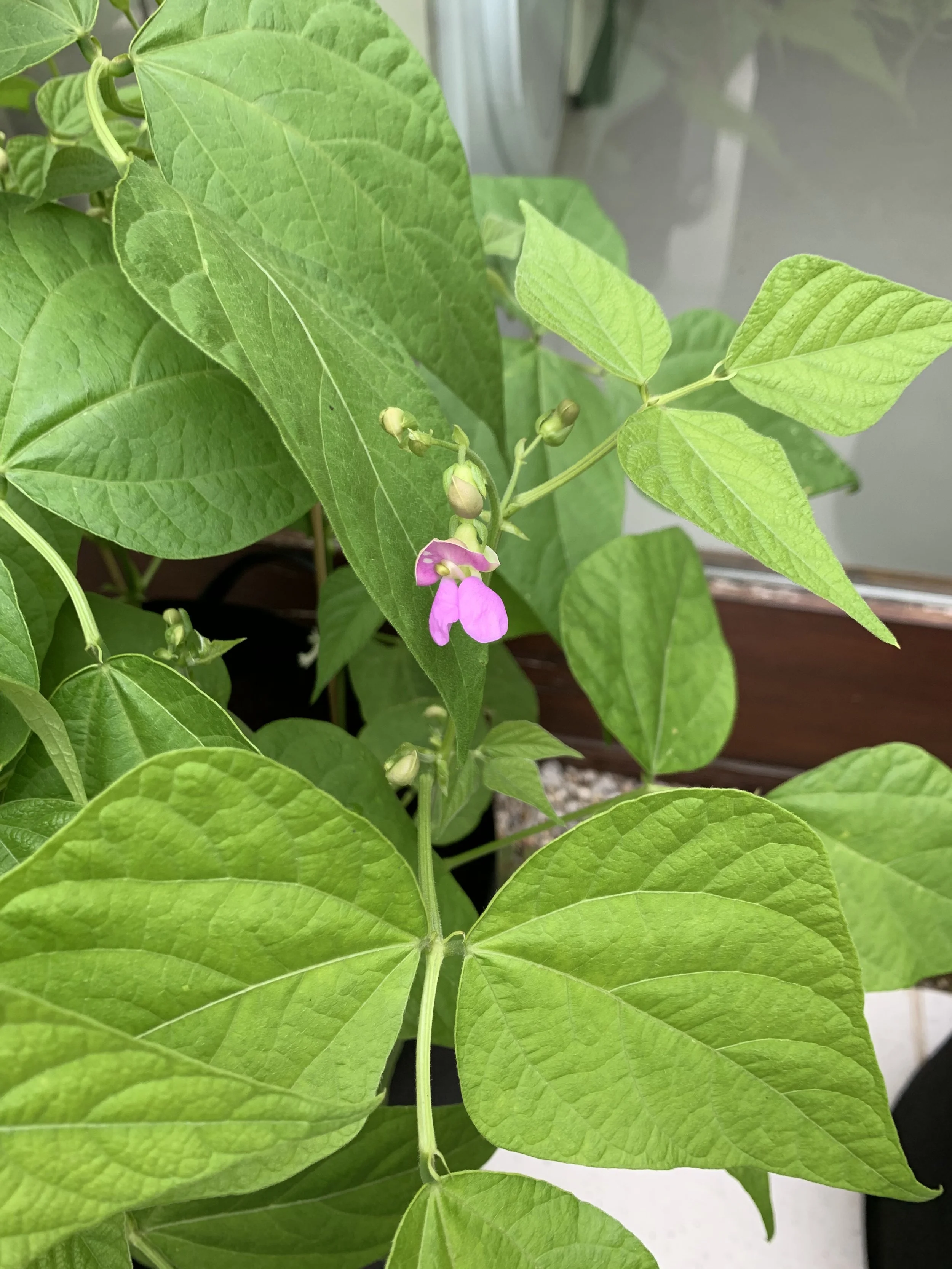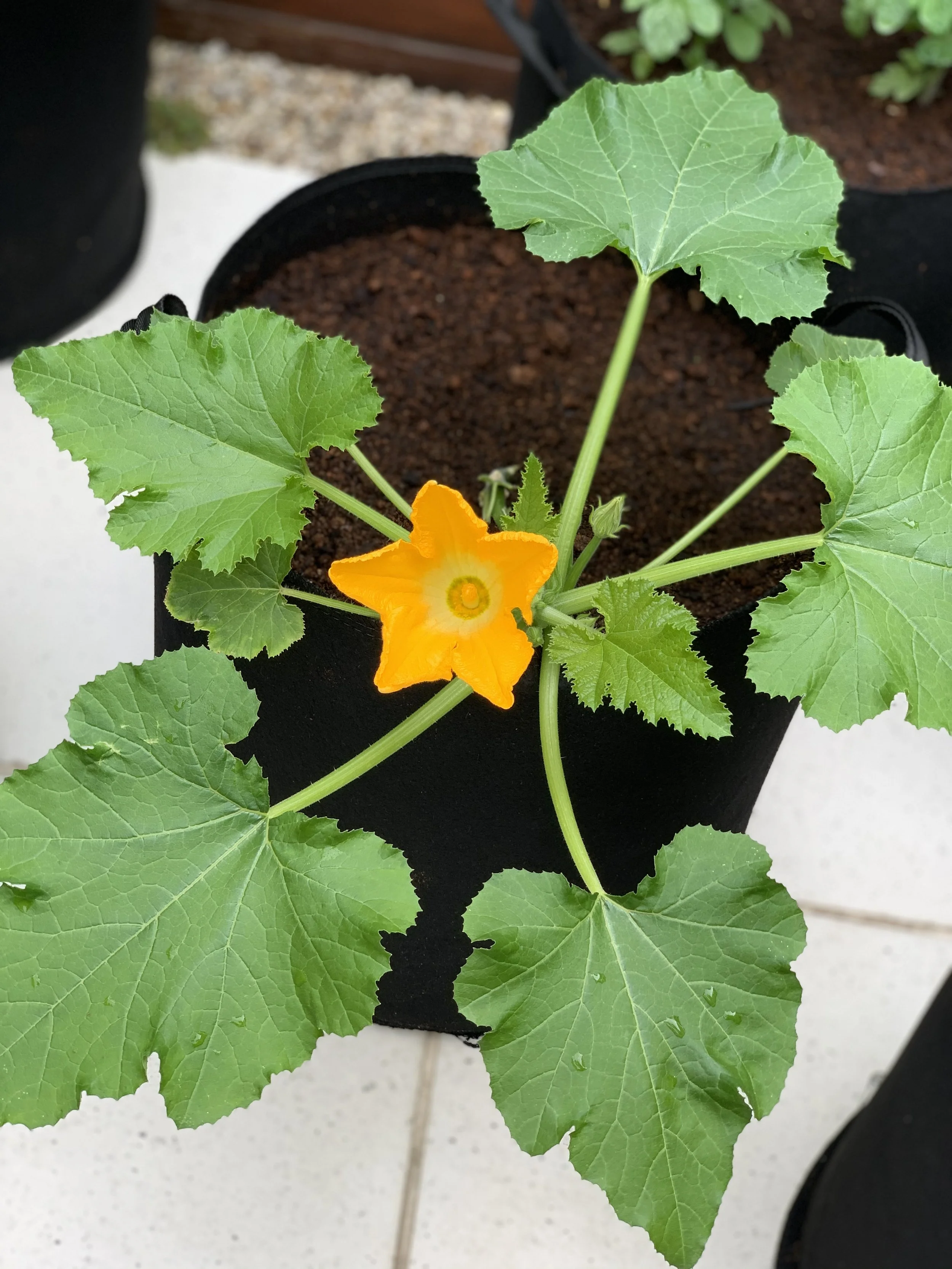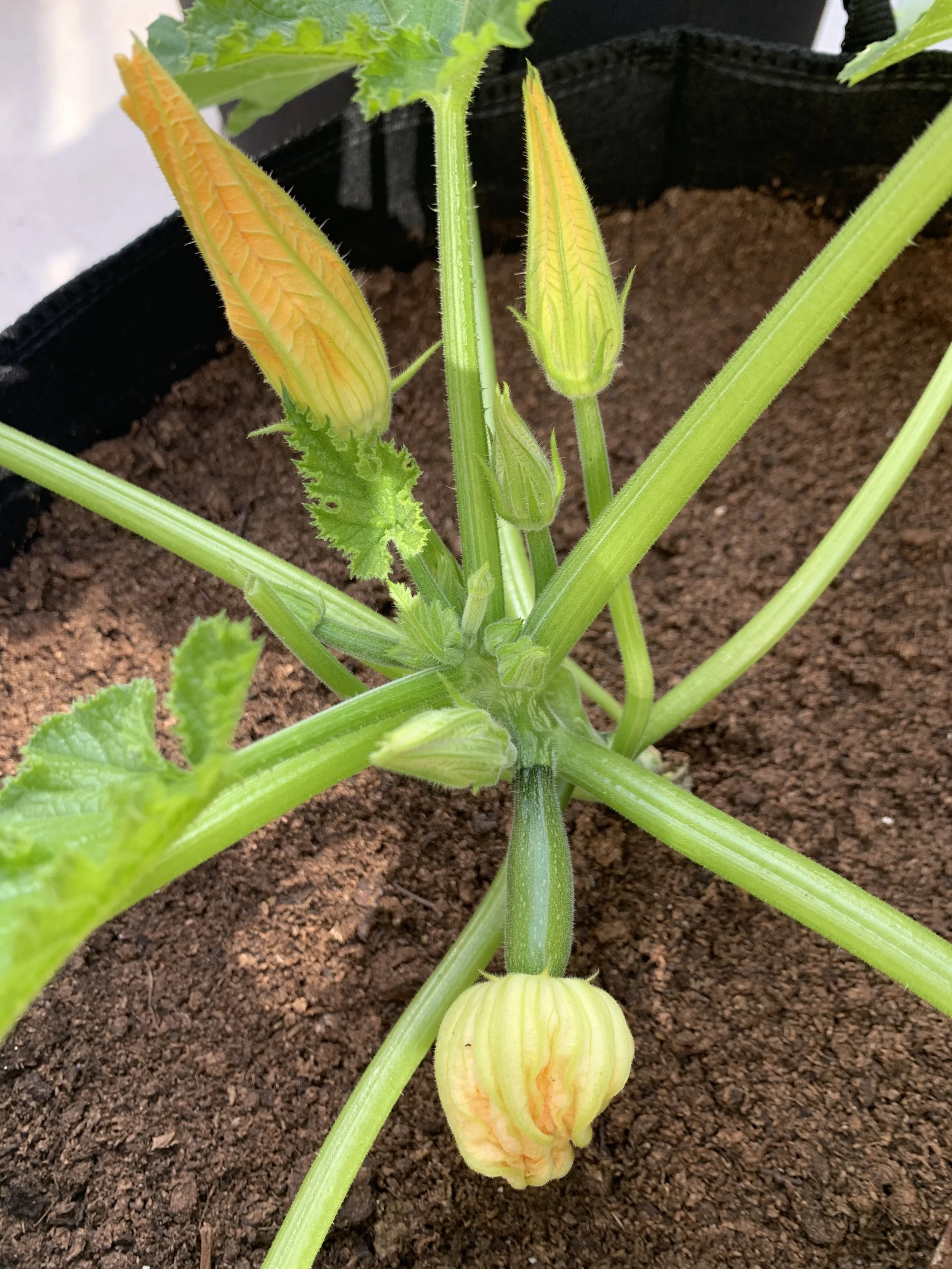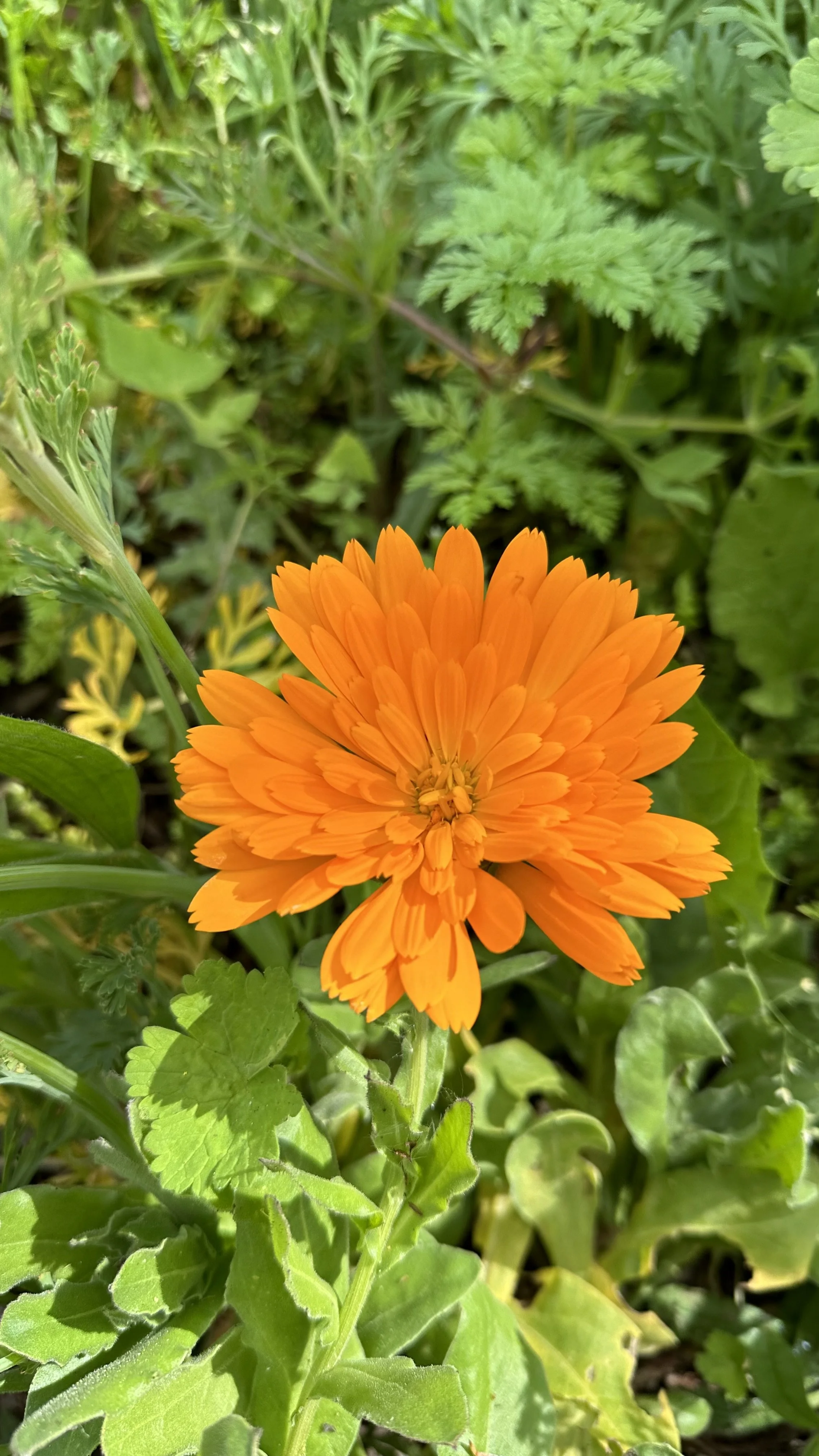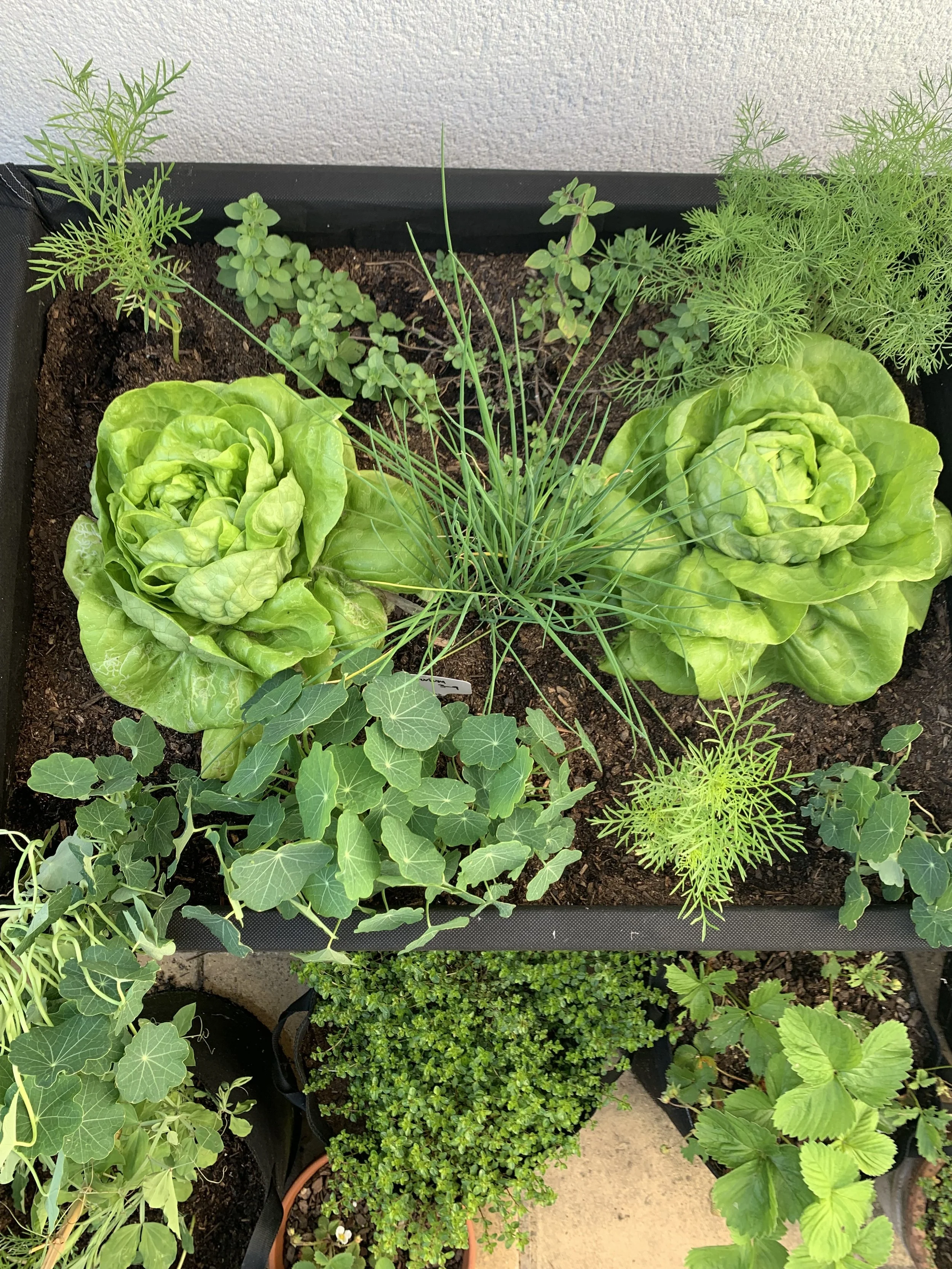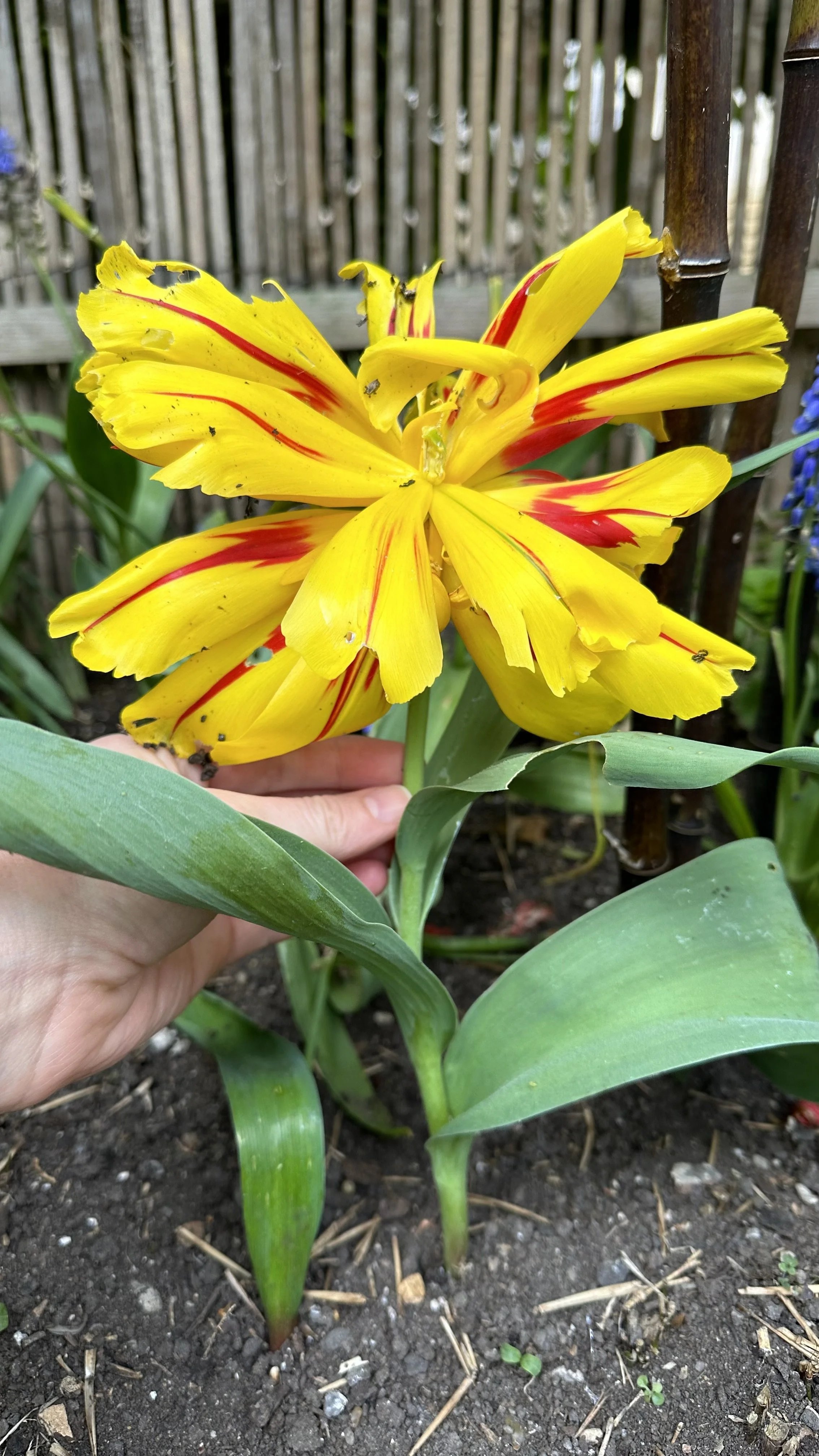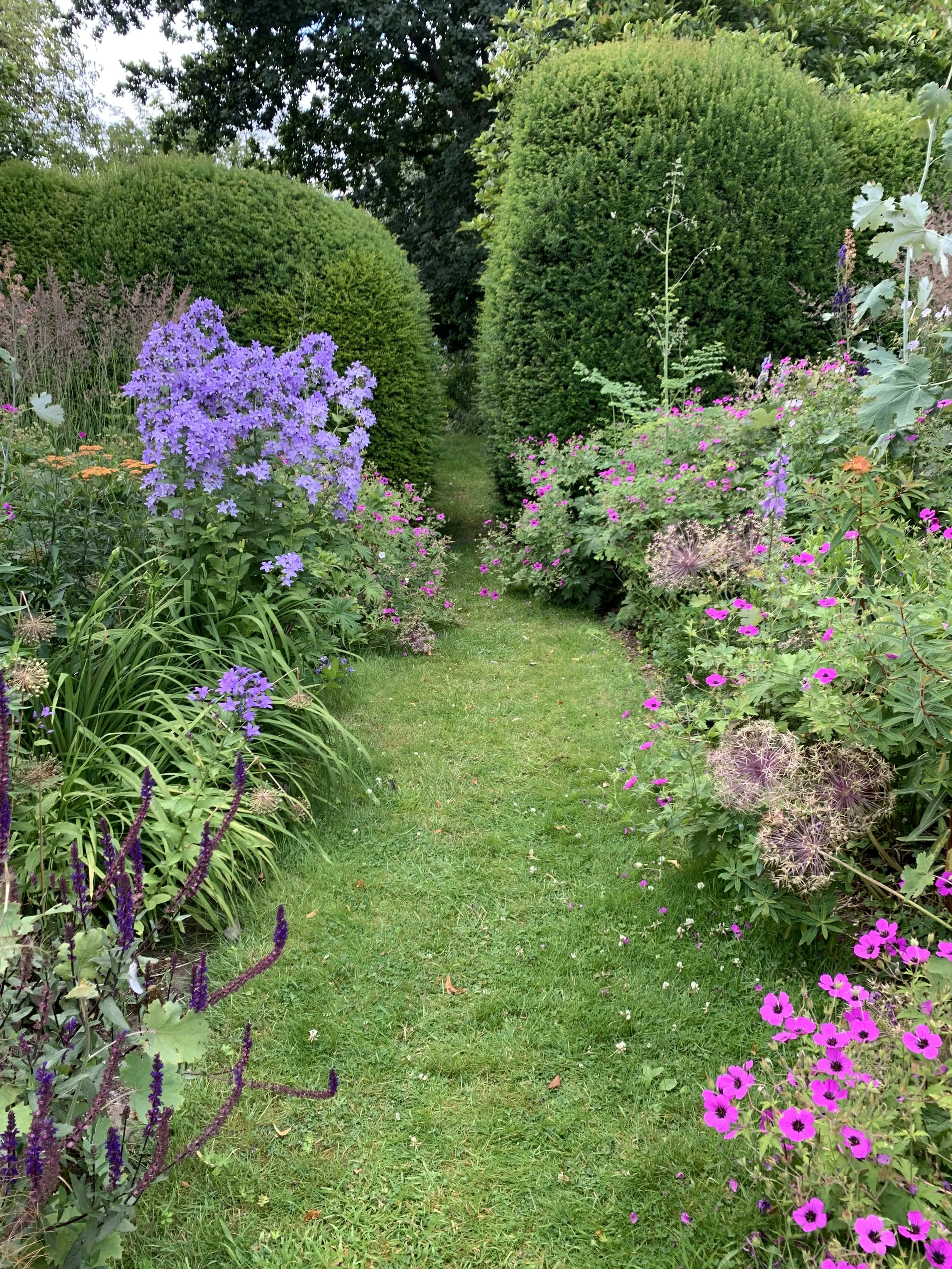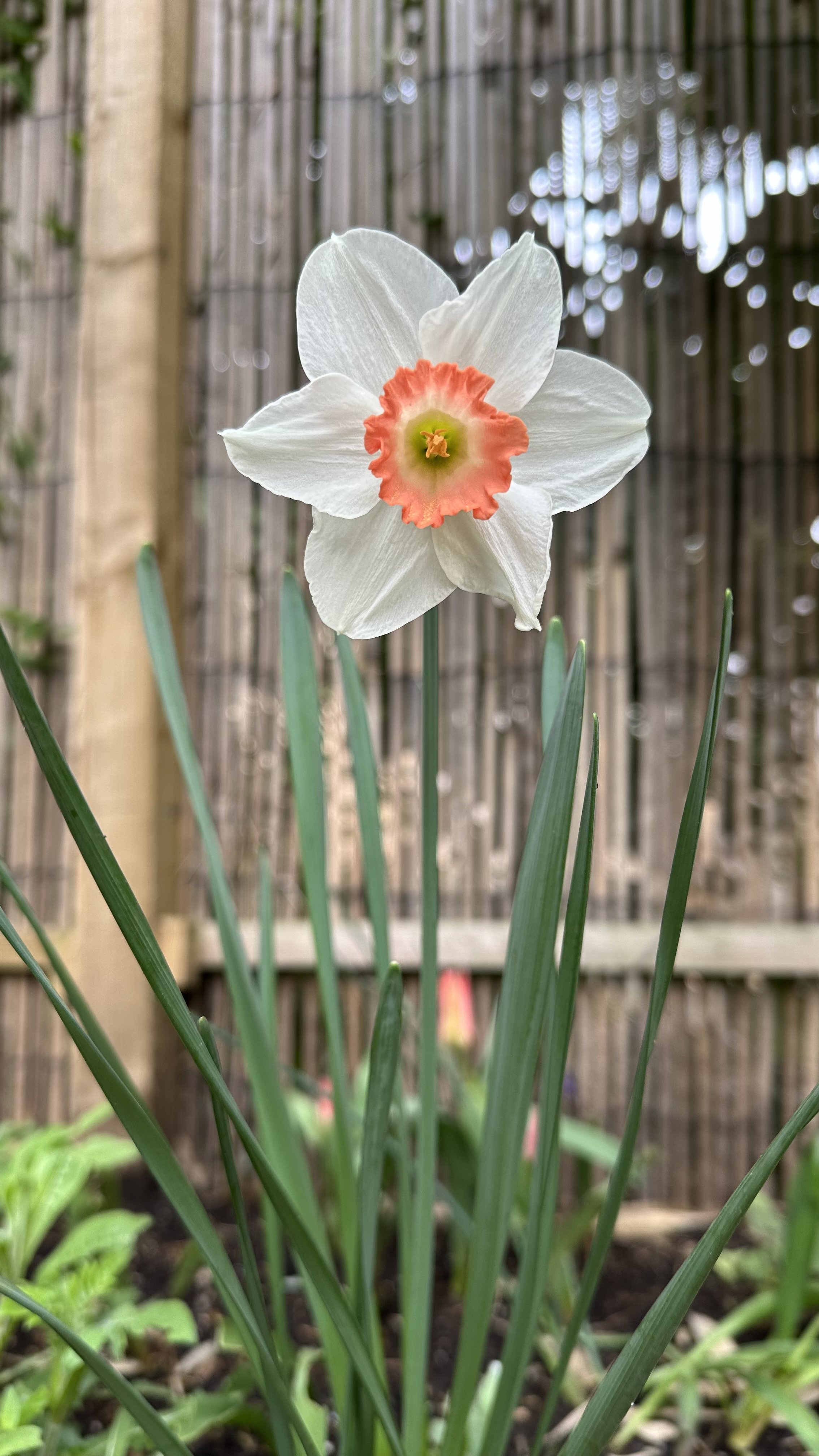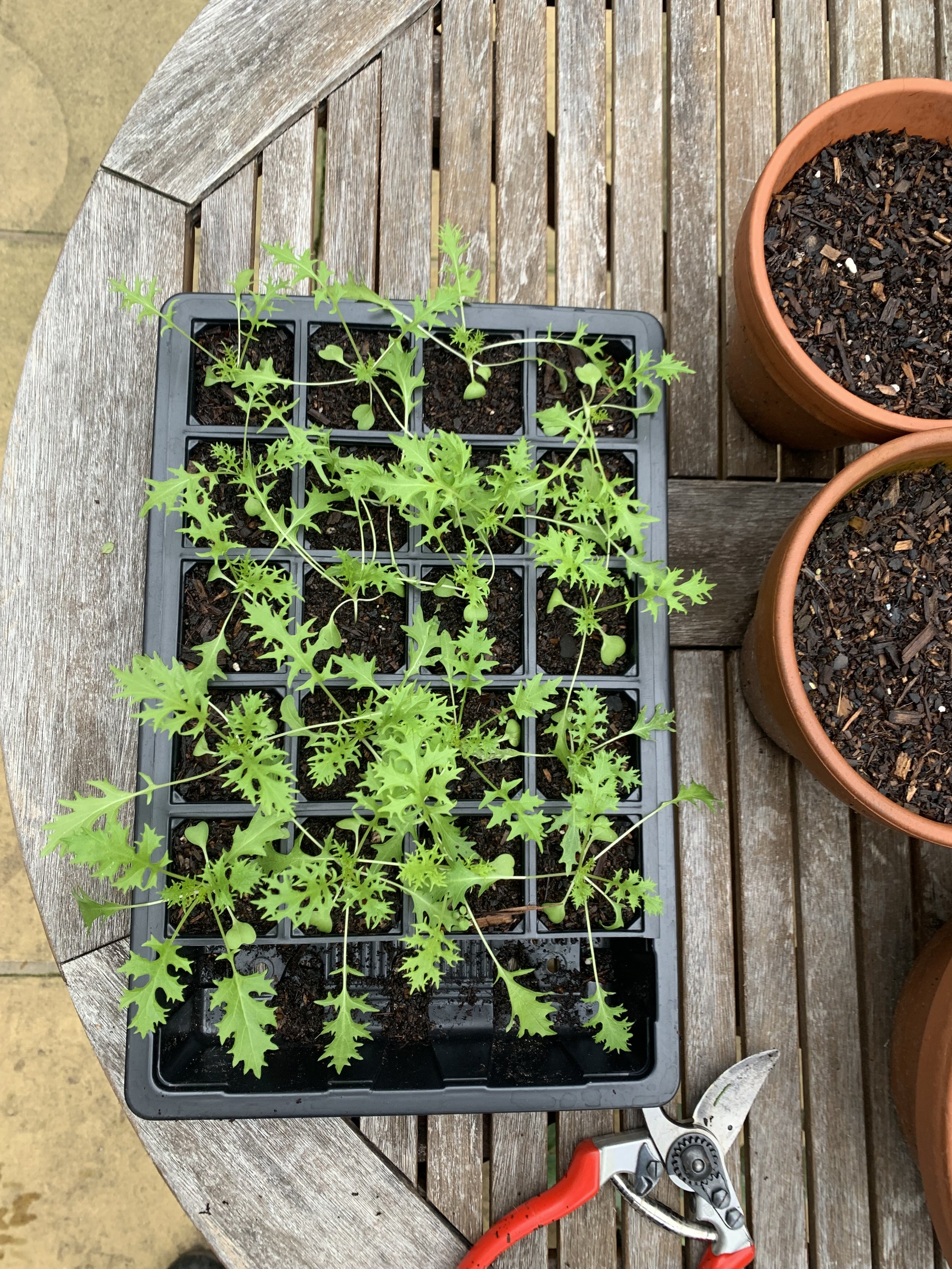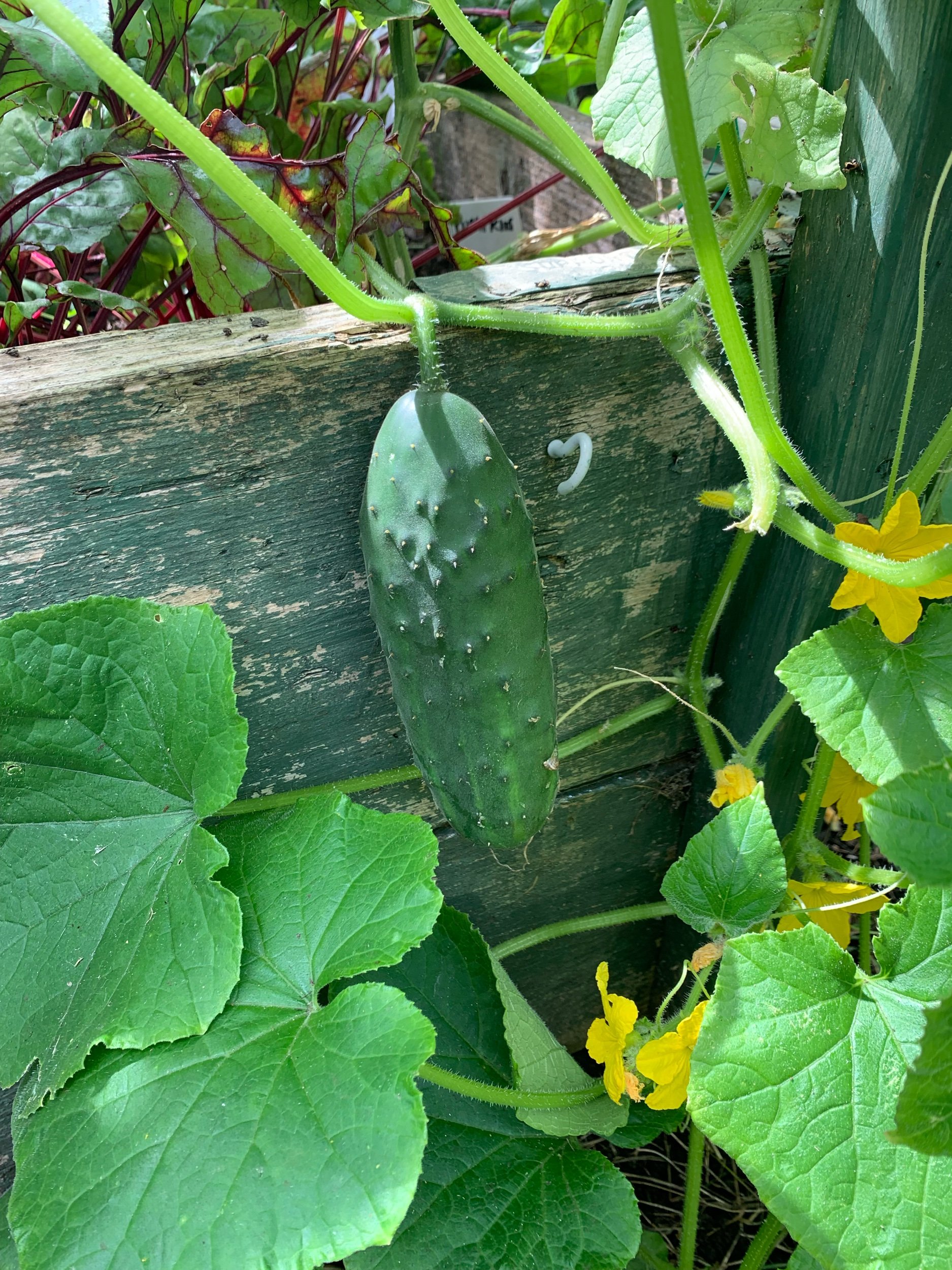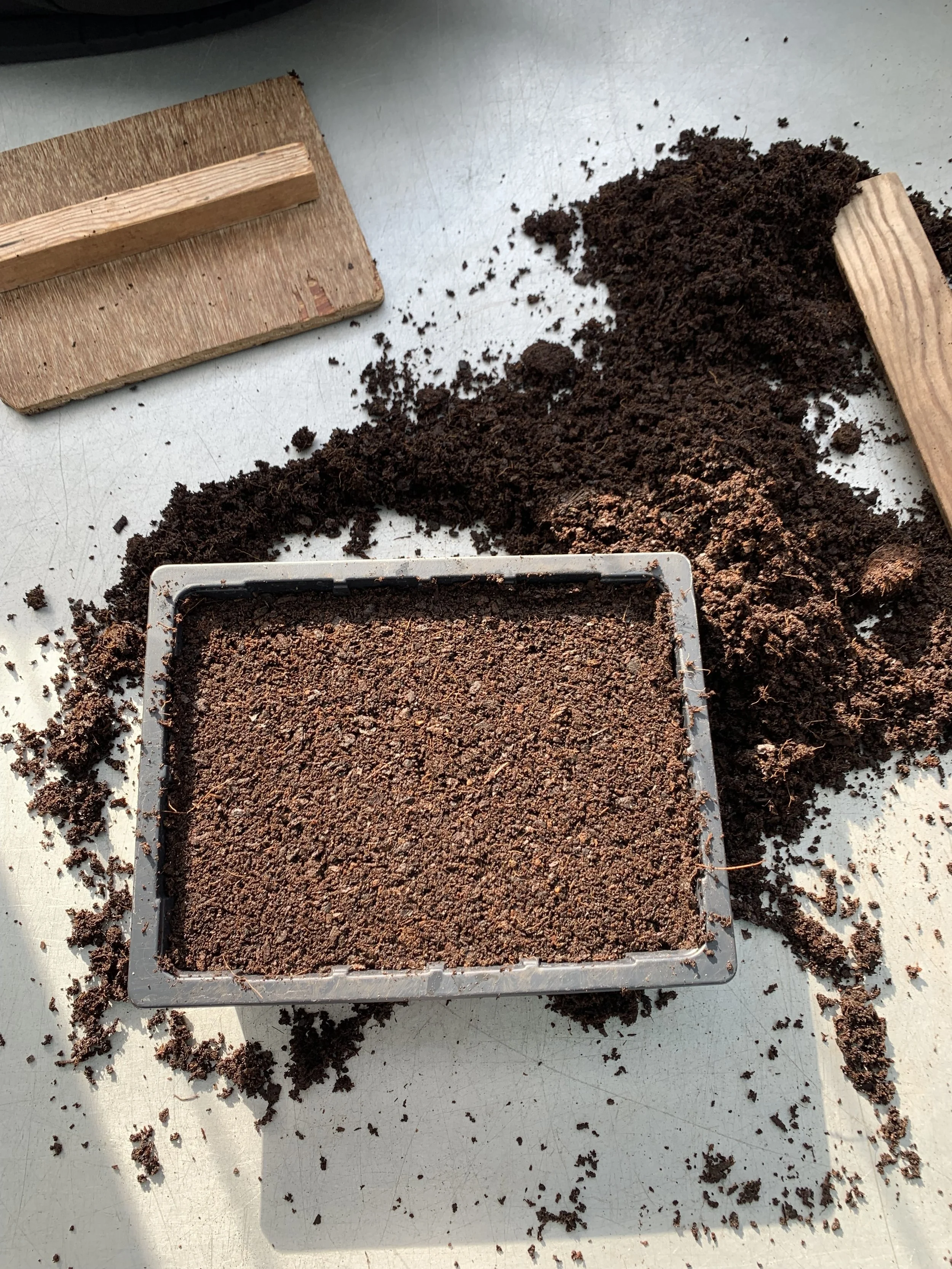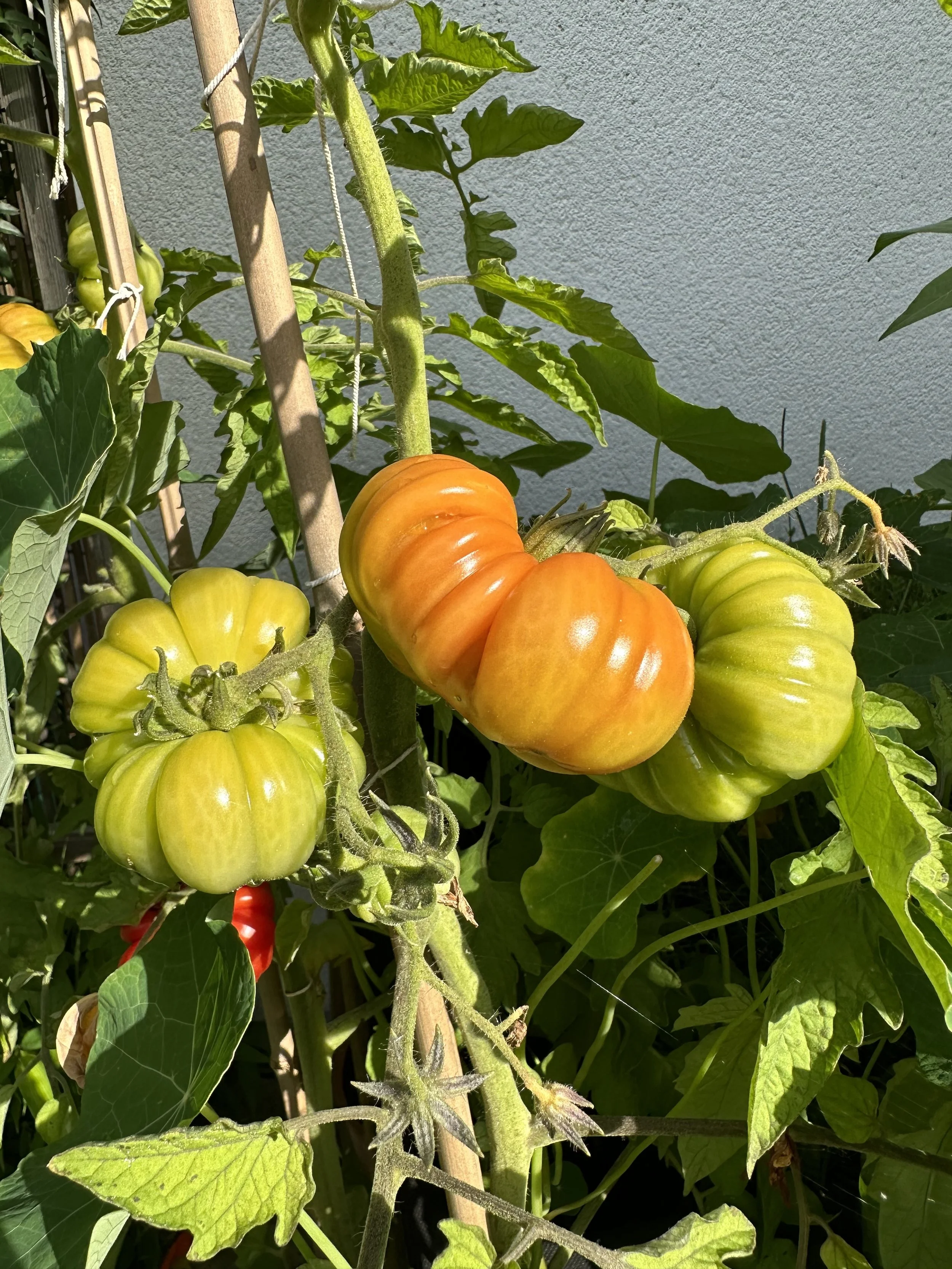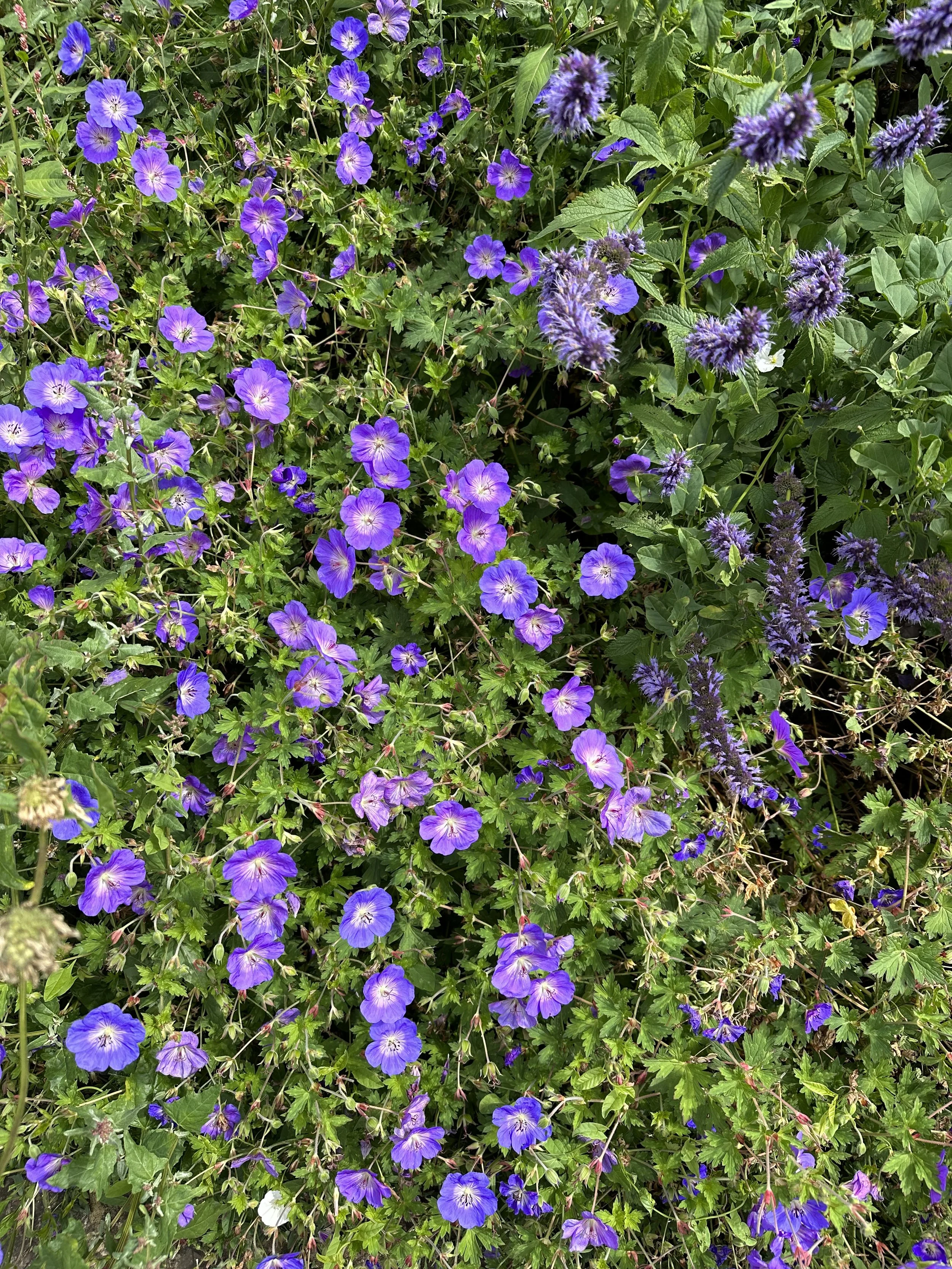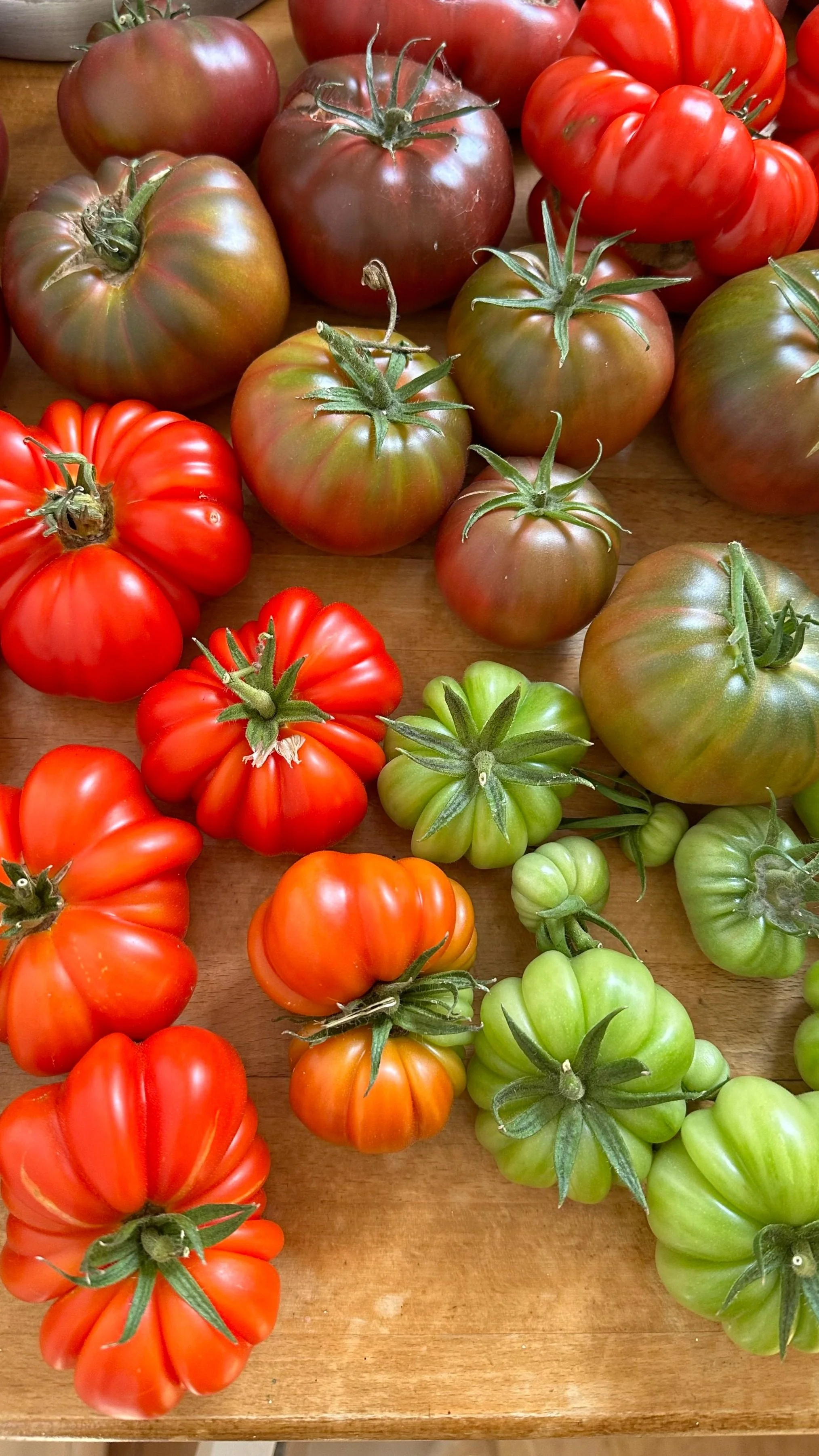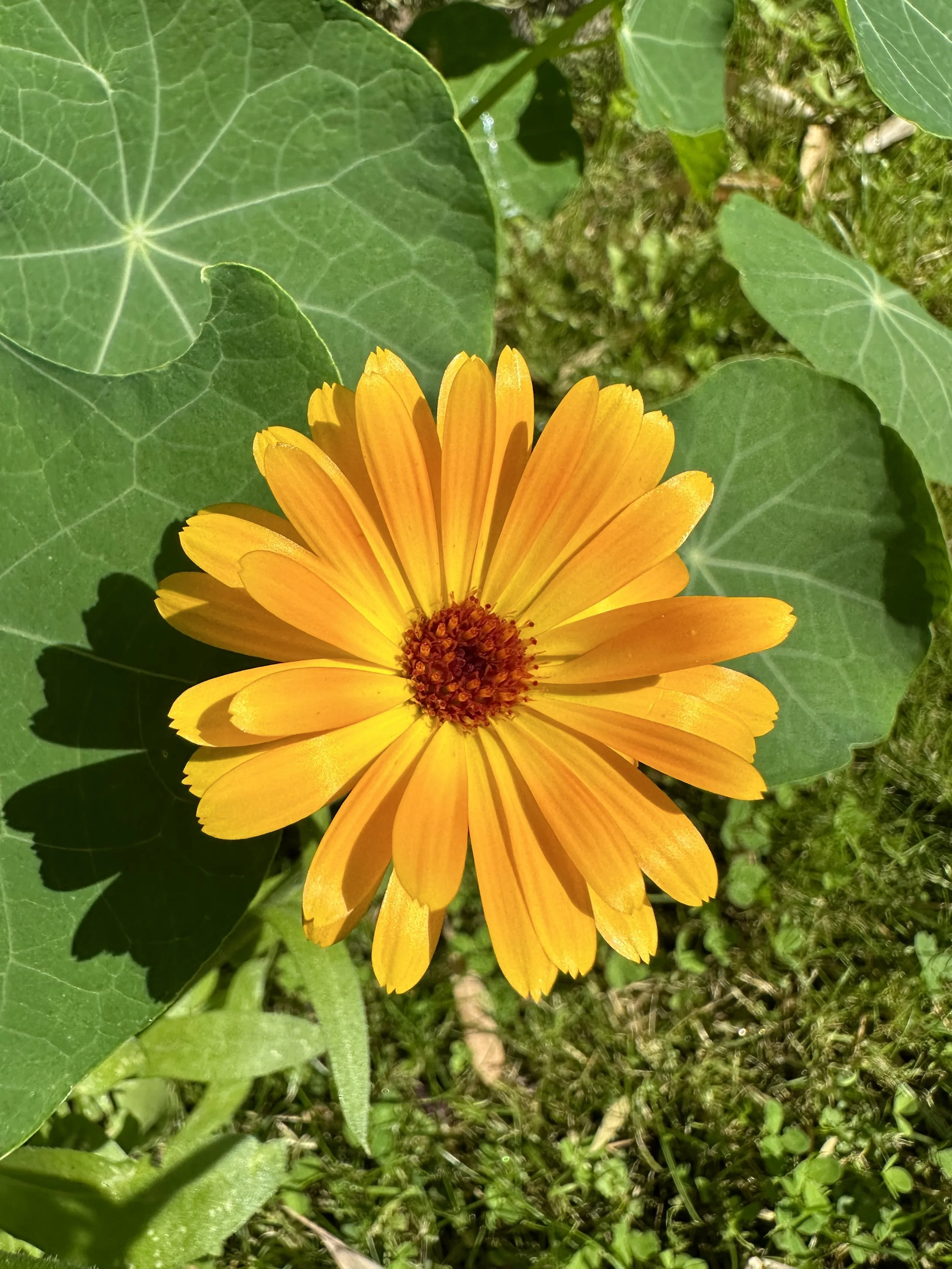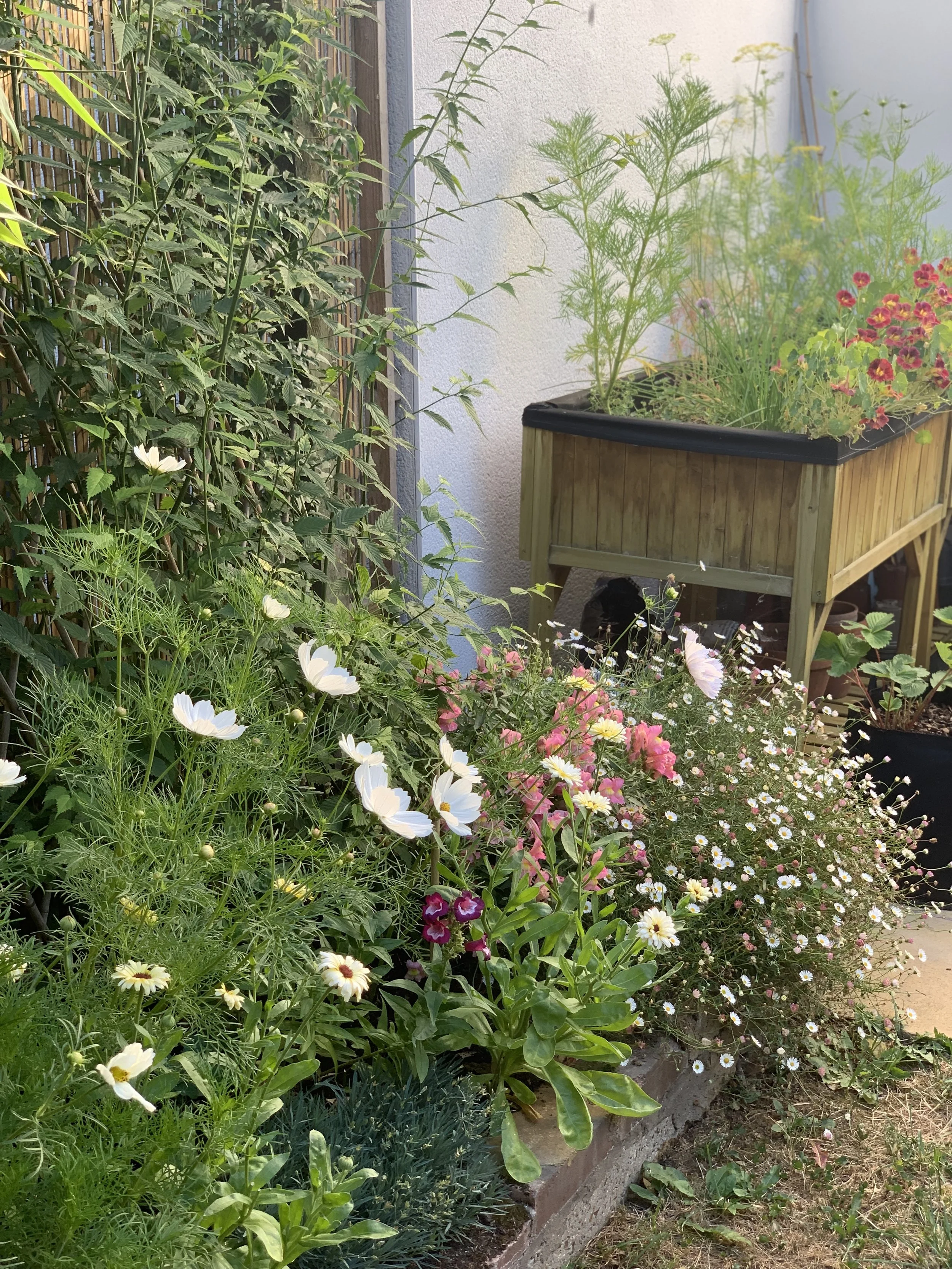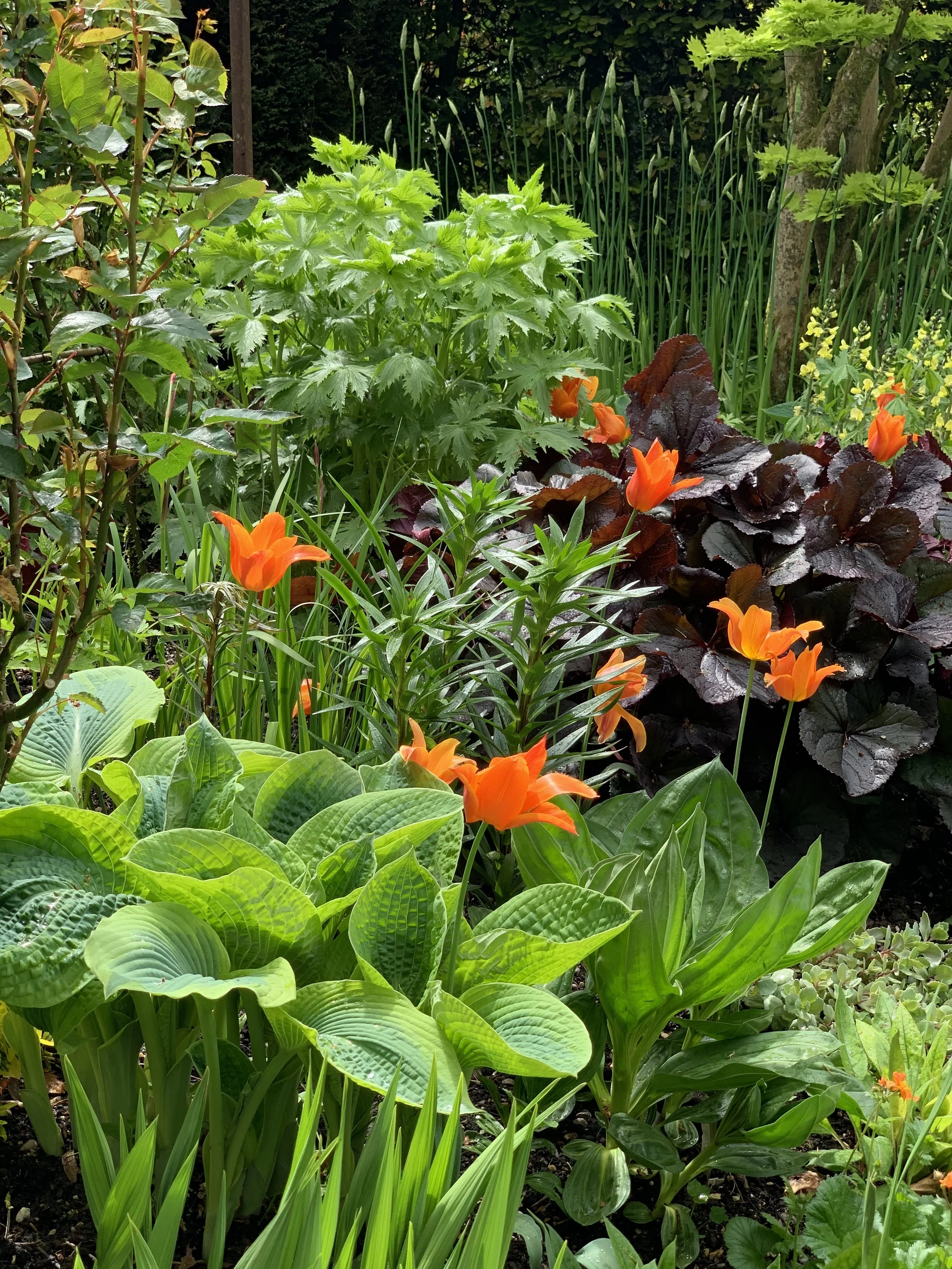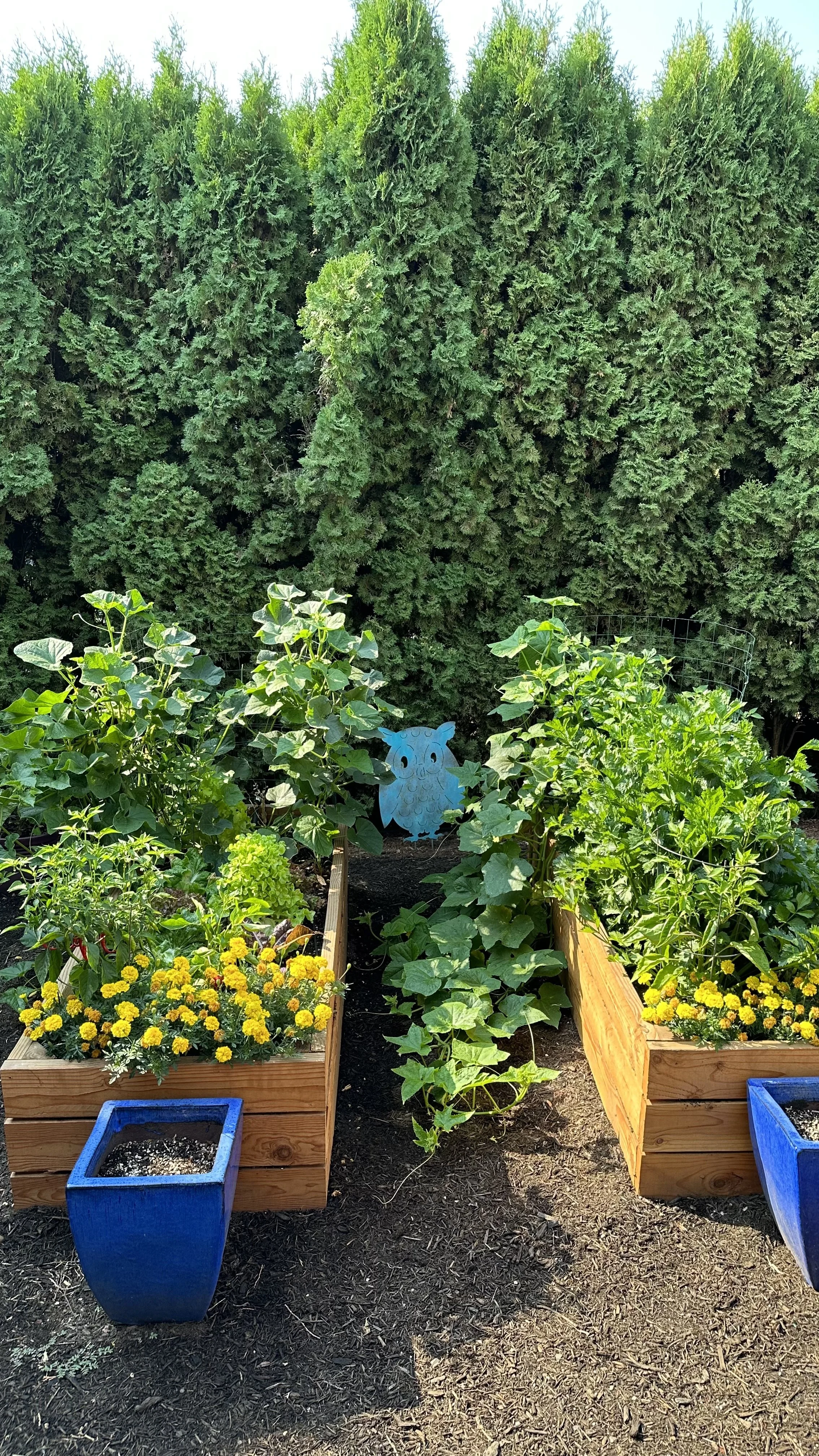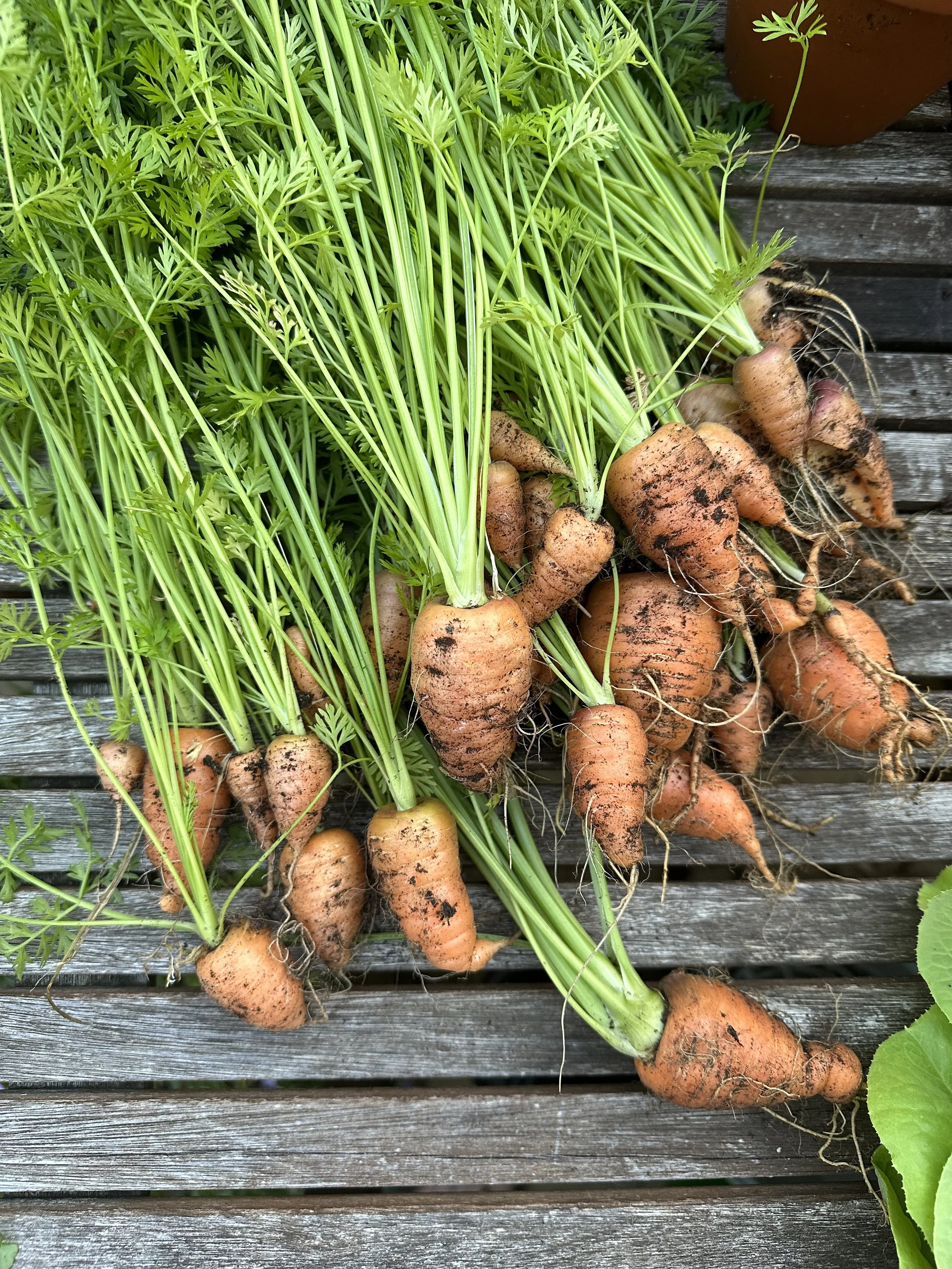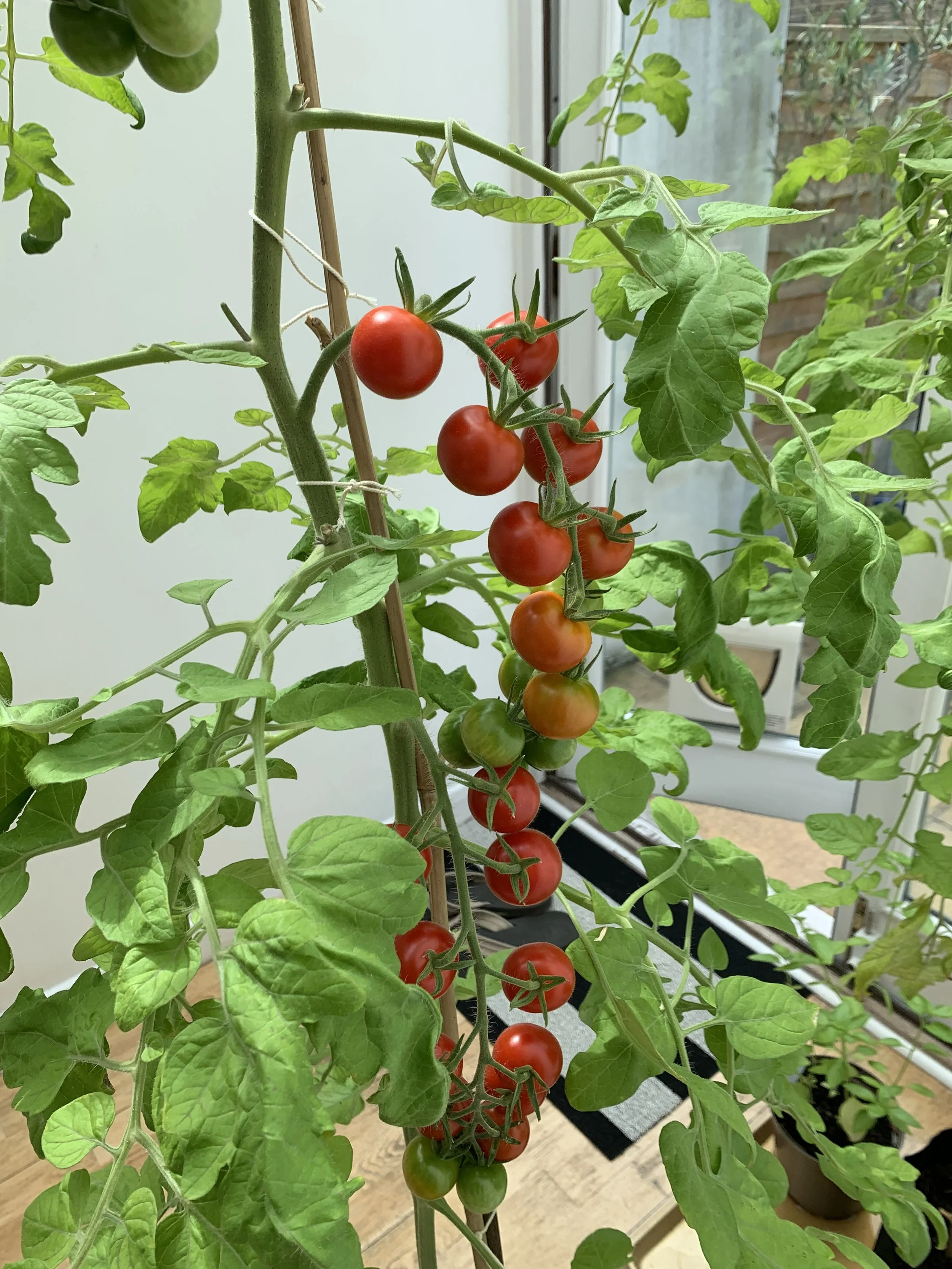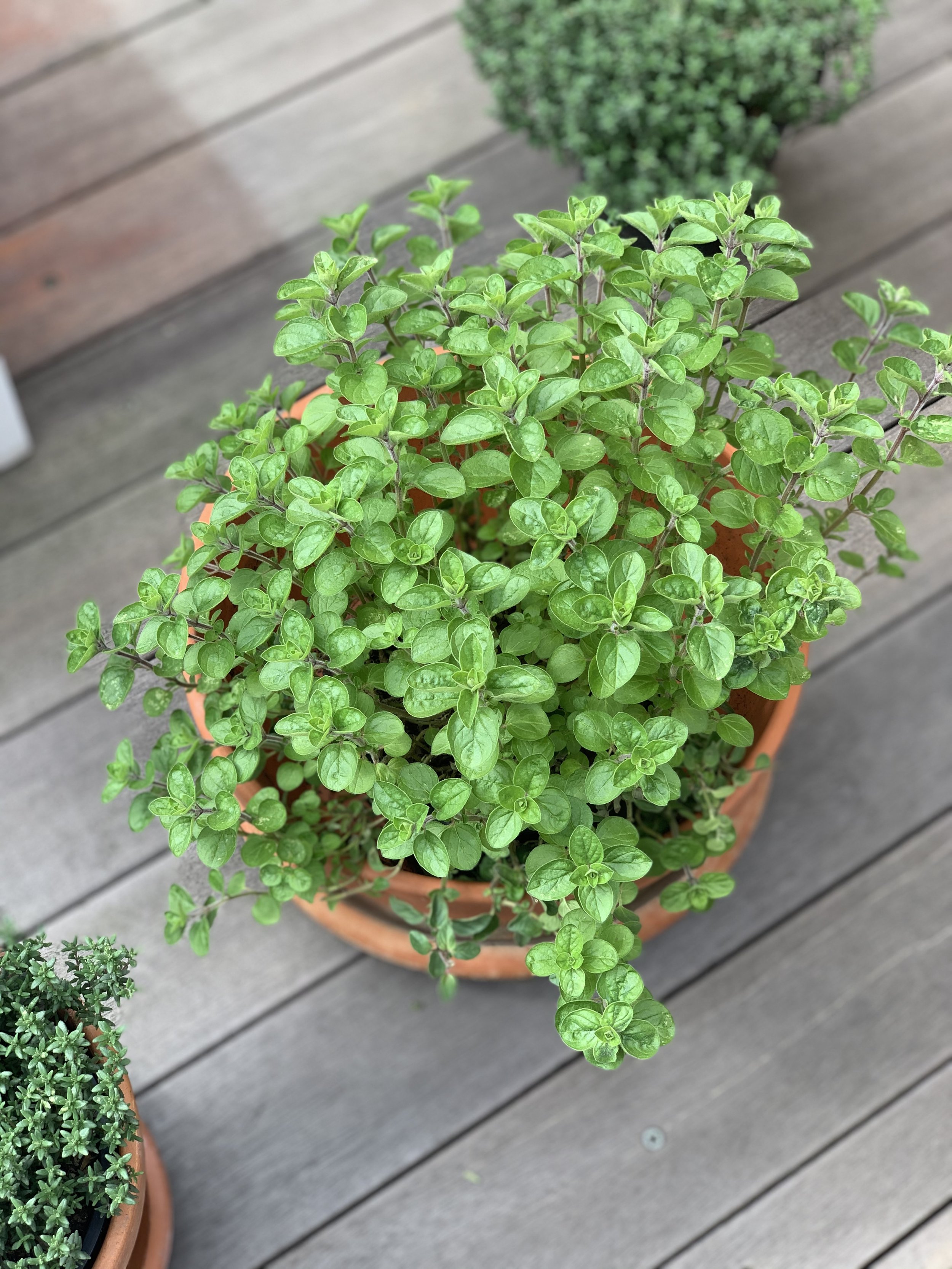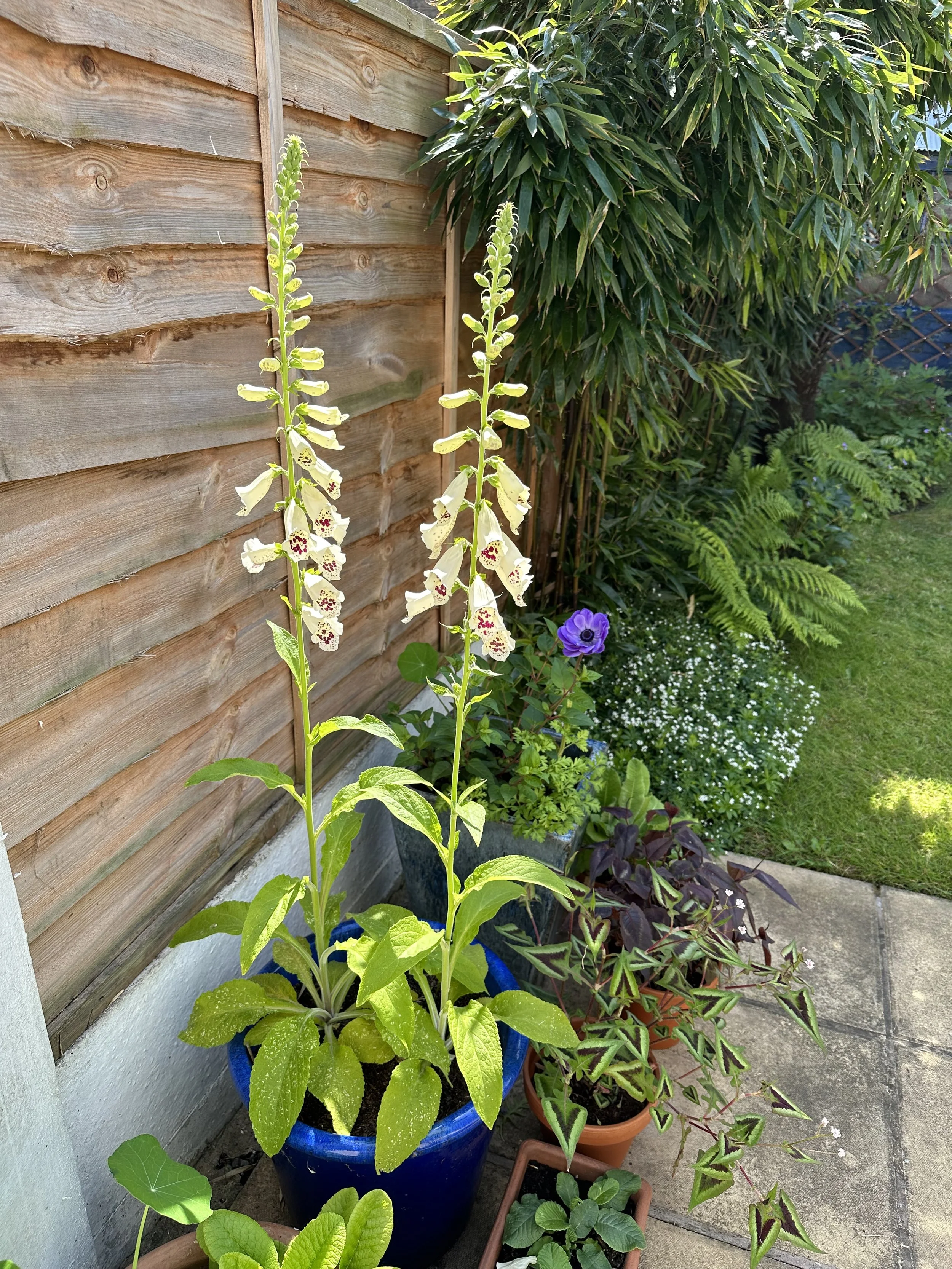Maximize Your Zucchini Harvest: Companion Planting Guide
This article has links to products that I may make commission from.
Exploring the world of zucchini companion plants opens up a treasure trove of benefits for your summer garden.
The practice of thoughtfully pairing zucchini with certain other plants not only aids in natural pest control but also enhances the ability to attract pollinators, ensuring a vibrant and fruitful summer squash harvest.
This approach to gardening taps into the inherent strengths of plant relationships, creating a harmonious environment where zucchini can thrive alongside its companions.
As summer unfolds, incorporating these companions into your garden layout promises not just a bounty of zucchini but also contributes to a healthier, more sustainable garden ecosystem.
Whether you're a seasoned gardener or new to the joys of growing summer squash, understanding the synergy between zucchini and its companion plants will elevate your gardening game, making this summer's harvest one to remember.
To learn more about growing zucchini, check out my guide:
A beautiful harvested zucchini.
Best Companion Plants for Zucchini
Companion planting is a key strategy for maximizing the health and yield of your zucchini plants.
By understanding which plants are beneficial to grow alongside zucchini, you can take advantage of natural pest control, soil improvement, and pollination enhancement.
Here's a detailed look at some of the best companions for your zucchini and why they're so effective:
1. Blue Hubbard Squash
Role: Trap Crop
Benefits: The Blue Hubbard squash is particularly effective as a trap crop for squash vine borers, a common pest that can devastate squash family crops. By planting them near your zucchini, the Blue Hubbard attracts these borers to itself, sparing your zucchini plants from damage.
Here are the blue hubbard seeds I recommend growing:
To learn more about vegetable companion planting, check out my guides:
Nasturtiums make excellent companion plants for zucchini.
2. Nasturtiums and Marigolds
Role: Pest Deterrent and Pollinator Attractants
Benefits: Both nasturtiums and marigolds are excellent at repelling a variety of pests that target zucchini, such as squash bugs and cucumber beetles.
Their vibrant blooms not only add beauty to your garden but also attract pollinators, which are essential for fruit set in zucchini.
They are both really easy to grow from seed.
To learn more about growing nasturtiums, check out my guide Utilizing Nasturtium Companion Plants for Natural Pest Control.
And to learn more about growing marigolds, check out my guide How to Pair Marigold Companion Plants.
Here are my favorite seeds:
3. Sweet Alyssum
Role: Living Mulch and Beneficial Insect Attractor
Benefits: Sweet alyssum, with its delicate flowers, serves as a living mulch, helping to retain soil moisture and suppress weeds.
It also attracts beneficial insects, including pollinators and predatory insects that control pest populations.
Here are my favorite sweet alyssum seeds to grow:
Beans are fantastic companion plants for zucchini.
4. Beans and Peas
Role: Nitrogen Fixers
Benefits: These legumes enrich the soil by fixing nitrogen, a crucial nutrient that promotes healthy growth in zucchini.
Planting beans and peas nearby can improve soil fertility, benefiting not only the zucchini but other garden plants as well.
To learn more about growing peas, check out my guide The Ultimate Guide to Growing Peas in Pots.
And to learn more about growing beans, check out my guide Easy Steps to Growing Green Beans in Containers.
Here are my favorite seeds to grow:
5. Other Squash Varieties
Role: Diversity for Pest and Disease Reduction
Benefits: Including a variety of squash plants like butternut squash and pumpkins in your garden can help in spreading out the risk of pest and disease infestation.
Different squash varieties have varying levels of resistance to pests and diseases, which can help protect your zucchini plants indirectly. Below are the ones I recommend.
To learn more about growing pumpkins, check out my guide Growing Pumpkins in Containers: A Complete Urban Garden Guide.
And to learn more about growing butternut squash, check out my guide When to Harvest Butternut Squash.
Here are the seeds I recommend:
Plants to Avoid Near Zucchini
1. Potatoes
Competition: Potatoes and zucchini are both heavy feeders, meaning they require a lot of nutrients from the soil to grow. When planted too closely, they compete for these vital nutrients, which can lead to stunted growth for both plants.
To learn more about growing potatoes, check out my guides The Best Potatoes to Grow in Bags and How Long Do Potatoes Take to Grow?
Disease Risk: Potatoes are susceptible to blight, a disease caused by fungi, which can also affect zucchini.
Planting them together can increase the risk of the disease spreading from one plant to the other, especially under humid conditions.
2. Cucumbers
Pest Attraction: Cucumbers and zucchini are susceptible to many of the same pests, such as cucumber beetles and squash bugs.
Planting them together can create a hotspot for these pests, leading to larger infestations and increased damage to both crops.
To learn more about growing cucumbers, check out my guide A Guide to Growing Perfect Greenhouse Cucumbers.
Disease Spread: Both plants can be affected by powdery mildew and other diseases.
Close proximity can facilitate the quick spread of diseases between the plants, making control more difficult.
3. Melons
Shared Pests and Diseases: Melons and zucchini are susceptible to the same pests, such as cucumber beetles, which can spread bacterial wilt and squash mosaic virus, negatively affecting both plants' health and yield.
To learn more about growing melons, check out my guide The Best and Worst Cantaloupe Companion Plants.
Competition for Resources: Both crops have similar nutrient and water needs, leading to competition that can stress the plants, potentially diminishing their growth and productivity.
Additional Considerations
While these are some of the main plants to avoid planting near zucchini, it's also wise to consider the following general guidelines:
Avoid Overcrowding: Regardless of the plants you choose, ensure there is enough space between them to allow for adequate air circulation, sunlight, and nutrient absorption. This helps in reducing the risk of pests and diseases.
Crop Rotation: Practicing crop rotation can help prevent soil depletion and reduce the buildup of pests and diseases in the soil.
Avoid planting zucchini or other squash family plants in the same spot year after year.
Healthy zucchini plant grown with companion plants.
Why Companion Planting Matters
Companion planting is not just about saving space. It's a strategic way to enhance your garden's health and productivity.
By pairing zucchini with beneficial neighbors, you can naturally deter pests, attract pollinators, and create a more resilient and vibrant vegetable garden.
Enhancing Plant Growth and Health
Companion planting supports plant growth in several ways.
Certain plants can improve the soil with essential nutrients that others, such as zucchini, need to thrive.
For instance, legumes like beans and peas fix nitrogen in the soil, making it available to neighboring plants, thereby fostering a nutrient-rich environment that benefits zucchini and enhances its growth.
To learn more about growing peas, check out my guide Companion Planting with Peas: Maximizing Your Garden's Potential.
Natural Pest Management
One of the most significant benefits of companion planting is its role in managing pests naturally.
By strategically placing certain plants together, gardeners can reduce the reliance on chemical pesticides.
Plants like marigolds and nasturtiums emit scents that repel common pests such as squash bugs and cucumber beetles, which are known to affect zucchini.
Additionally, the inclusion of trap crops like Blue Hubbard squash can lure pests away from zucchini, minimizing damage and promoting a healthier crop.
To learn more about growing marigolds, check out my guide How to Pair Marigold Companion Plants.
Attracting Beneficial Insects
Companion planting also encourages the presence of beneficial insects in the garden.
These insects, including pollinators like bees and natural predators like ladybugs, play a vital role in the ecosystem.
Flowers such as sweet alyssum attract these helpful creatures, ensuring effective pollination and controlling pest populations naturally.
This balance is essential for a productive zucchini harvest and for maintaining the overall health of the garden.
Disease Prevention
Growing certain plants together can also help prevent the spread of diseases.
By increasing biodiversity in the garden through companion planting, you reduce the risk of diseases that can rapidly spread in monoculture settings.
Diverse plantings can interrupt the transmission of pathogens and minimize the impact of diseases that affect zucchini and other crops.
Maximizing Garden Space
Companion planting is an efficient way to utilize garden space effectively. By understanding the spatial needs and compatibility of different plants, gardeners can create a layout that accommodates more plants in less space.
This is particularly beneficial for small gardens or for gardeners looking to maximize their yield. For example, taller plants can provide shade for lower-growing, shade-tolerant companions, reducing water evaporation and cooling the soil.
Enhancing Garden Biodiversity
Beyond individual plant benefits, companion planting enhances overall garden biodiversity, creating a more resilient and sustainable ecosystem.
A diverse garden is more resistant to pest invasions, disease outbreaks, and extreme weather conditions. This resilience is crucial for maintaining a productive garden year after year.
Creating a Harmonious Environment
Finally, companion planting contributes to the aesthetic and environmental harmony of the garden.
It encourages a natural balance, bringing together plants that support each other's growth and health. This harmony not only benefits the garden's productivity but also its beauty, creating a vibrant and dynamic space that gardeners can enjoy.
Ready to learn more about companion planting? Check out my guides:
The first time I grew zucchini it was in pots near companion plants and it was really successful.
Natural Pest Control and Pollination
Incorporating flowers like nasturtiums and marigolds not only repels pests but also attracts pollinators to your zucchini plants.
Establishing a garden environment that invites beneficial insects ensures natural pest control and assists in pollination, crucial for fruit development.
Natural Pest Control
Natural pest control involves utilizing plants, insects, and other natural measures to manage pest populations in the garden.
This approach is preferable to relying on synthetic pesticides, which can harm beneficial insects, degrade soil health, and ultimately enter our food chain.
Here’s how it applies to zucchini cultivation:
Attracting Predatory Insects: Beneficial insects such as ladybugs, lacewings, and predatory wasps play a critical role in controlling pest populations.
By planting flowers like sweet alyssum or herbs such as dill and parsley, gardeners can attract these predators, which will help keep aphids, mites, and other pests in check.
To learn more about growing parsley, check out my guide Parsley's Perfect Partners: Companion Planting for Parsley.
Using Trap Crops: A trap crop is a plant that attracts pests away from the main crop.
Blue Hubbard squash, for instance, is more attractive to squash vine borers than zucchini. Planting it as a sacrificial crop can protect zucchini plants by diverting pests.
Enhancing Pollination
Pollination is crucial for the fruiting of many plants, including zucchini. Without effective pollination, plants may produce poorly shaped or no fruit at all.
Enhancing pollination naturally involves attracting and supporting the pollinators that visit the garden:
Attracting Bees and Other Pollinators: Flowers play a key role in attracting bees, butterflies, and other pollinating insects to the garden.
By planting a variety of flowering plants that bloom at different times throughout the growing season, gardeners can ensure a steady presence of pollinators.
Plants such as Santa Barbara daisy, lavender, and geums are excellent at attracting bees, which are vital for pollinating zucchini flowers.
To learn more about growing lavender, check out my guide Lavender Companion Plants: Enhancing Your Herb Garden.
Providing Habitat: Beyond planting specific flowers, providing habitats for pollinators can also enhance pollination.
This can include leaving areas of the garden undisturbed for ground-nesting bees, providing water sources, and avoiding pesticides that could harm these beneficial insects.
Integrated Approach
Integrating natural pest control and pollination strategies offers a holistic approach to garden management.
This synergy not only supports zucchini plants but also contributes to the overall health of the garden ecosystem.
Here are a few tips to maximize these benefits:
Diverse Plantings: A diverse garden with a mix of vegetables, herbs, and flowers creates a robust ecosystem that supports both pest control and pollination.
Succession Planting: Planting flowers and crops at intervals can ensure continuous bloom and coverage throughout the growing season, providing ongoing support for pollinators and natural pest control agents.
Organic Practices: Maintaining organic practices, such as using compost for fertility and mulch for weed control, supports the health of both the soil and the beneficial organisms that inhabit it.
To learn more about creating your own compost, check out my guide How to Start Composting in a Tumbler.
Baby zucchini grown near companion plants.
Companion Planting Tips
1. Spacing
Proper spacing is crucial in companion planting to ensure that each plant has enough room to grow without competing for resources.
Zucchini plants, for instance, require a lot of space because they are quite bushy and have large leaves. Ensure that companion plants are placed at a suitable distance to allow for air circulation, sunlight exposure, and access to nutrients.
Tip: Follow the spacing guidelines provided for each plant species and consider the mature size of each plant to prevent overcrowding.
2. Diversity
Incorporating a variety of plants can lead to a healthier and more productive garden.
Diversity in planting discourages pest infestations and promotes a balanced ecosystem. For zucchini, including flowers, herbs, and other vegetable varieties can attract beneficial insects and reduce the chances of disease.
Tip: Plant a mix of flowers alongside your zucchini to attract pollinators and beneficial predators that will help manage pest populations.
3. Rotation
Practicing crop rotation is another vital aspect of companion planting.
Rotating crops from year to year can prevent the depletion of soil nutrients and reduce the buildup of pests and diseases in the soil.
Tip: Avoid planting zucchini or other squash family plants in the same location year after year. Rotate with crops that belong to different families, such as legumes or leafy greens, to maintain soil health.
4. Utilize Vertical Space
Some companion plants can be grown vertically to save space and benefit zucchini.
For example, climbing plants like peas and beans can fix nitrogen in the soil, benefiting the zucchini grown below.
Tip: Use trellises or supports for climbing plants to maximize garden space and provide benefits to zucchini without encroaching on its growing area.
8. Monitor and Adjust
Observation is key in companion planting. Monitor your garden regularly to see how plants are interacting and adjust your strategy as needed.
What works one year may need tweaking the next, based on changes in pest populations, weather conditions, and other variables.
Tip: Keep a garden journal to note what companion planting combinations work best for your zucchini and other vegetables. This record can be invaluable for planning future gardens.
FAQs
Q: Can I plant tomatoes next to zucchini?
A: Yes, tomatoes and zucchini can be planted next to each other in the garden.
Both plants have similar water and sunlight requirements, making them compatible neighbors. Planting tomatoes next to zucchini can also help shade the soil and conserve moisture, benefiting the zucchini during hot weather.
However, it's important to maintain adequate spacing to ensure that both plants have enough room to grow without competing for nutrients and sunlight.
Also, be mindful of the risk of spreading diseases like blight, as both are susceptible, though proper garden hygiene and spacing can mitigate this risk.
To learn more about growing tomatoes, check out my guides:
Q: What are some companion plants for zucchini in containers?
A: Growing zucchini in containers can limit the space available for companion planting, but there are still several options.
Herbs such as basil and oregano are excellent companions for zucchini in containers due to their compact growth habit and pest-repelling properties.
Marigolds can also be a good choice for their ability to deter pests while requiring minimal space. When choosing companion plants for containers, consider the size of the container and the growth habits of the plants to ensure they can coexist without overcrowding.
To learn more about growing oregano, check out my guide The Undisputed Best Oregano Companion Plants.
Q: Are there any flowers I should plant with zucchini?
A: Yes, planting flowers with zucchini can bring several benefits, including attracting pollinators and beneficial insects, as well as deterring pests.
Flowers such as lavender, yarrow, and echinacea are beneficial. Nasturtiums can repel squash bugs and cucumber beetles, marigolds may deter nematodes and pests with their scent, and sweet alyssum attracts beneficial predators that feed on common pests.
Integrating these flowers into your zucchini planting can enhance pollination and natural pest control.
To learn more about growing echinacea, check out my guide The Perfect Partners: Echinacea Companion Planting Guide.






